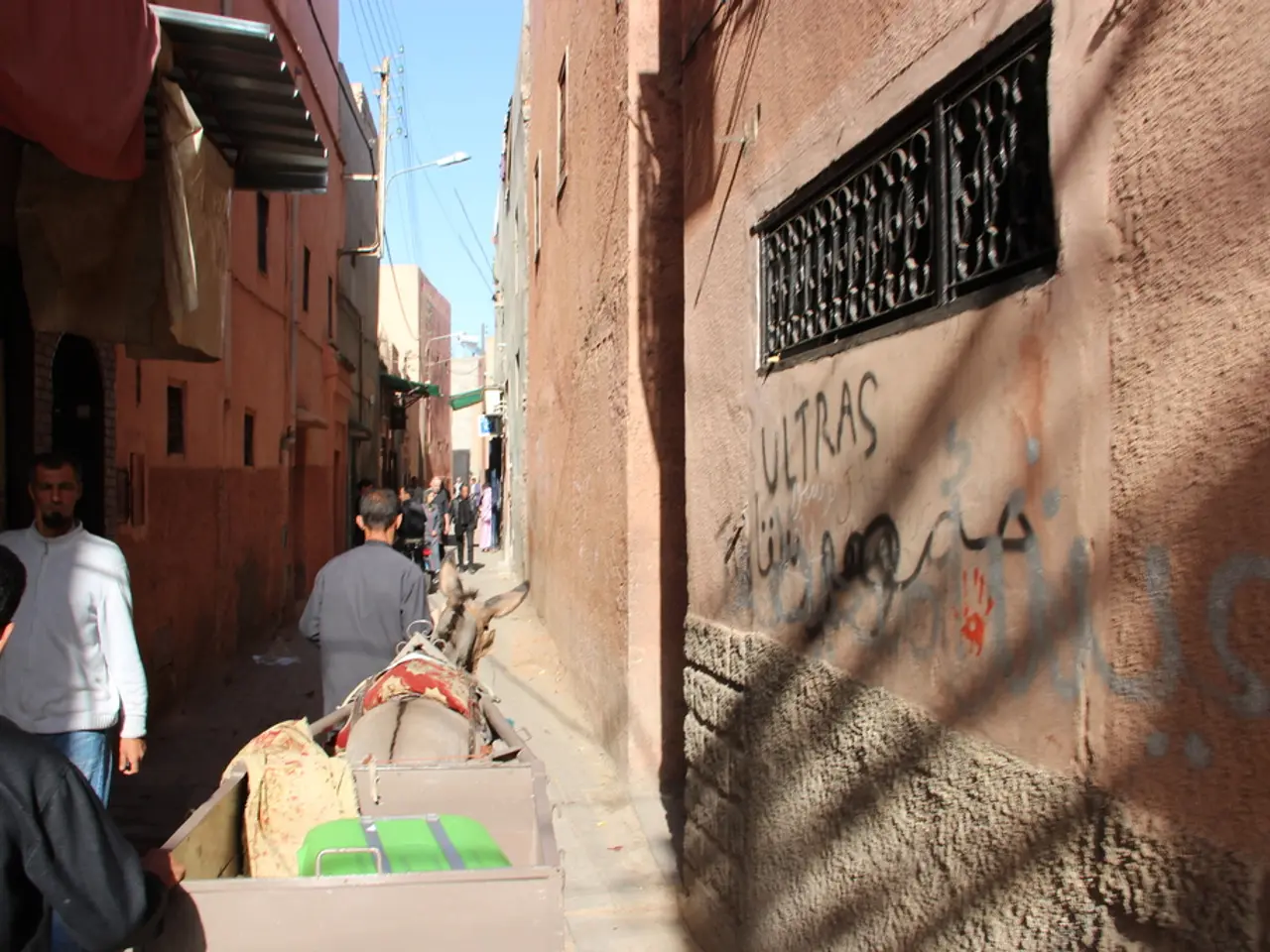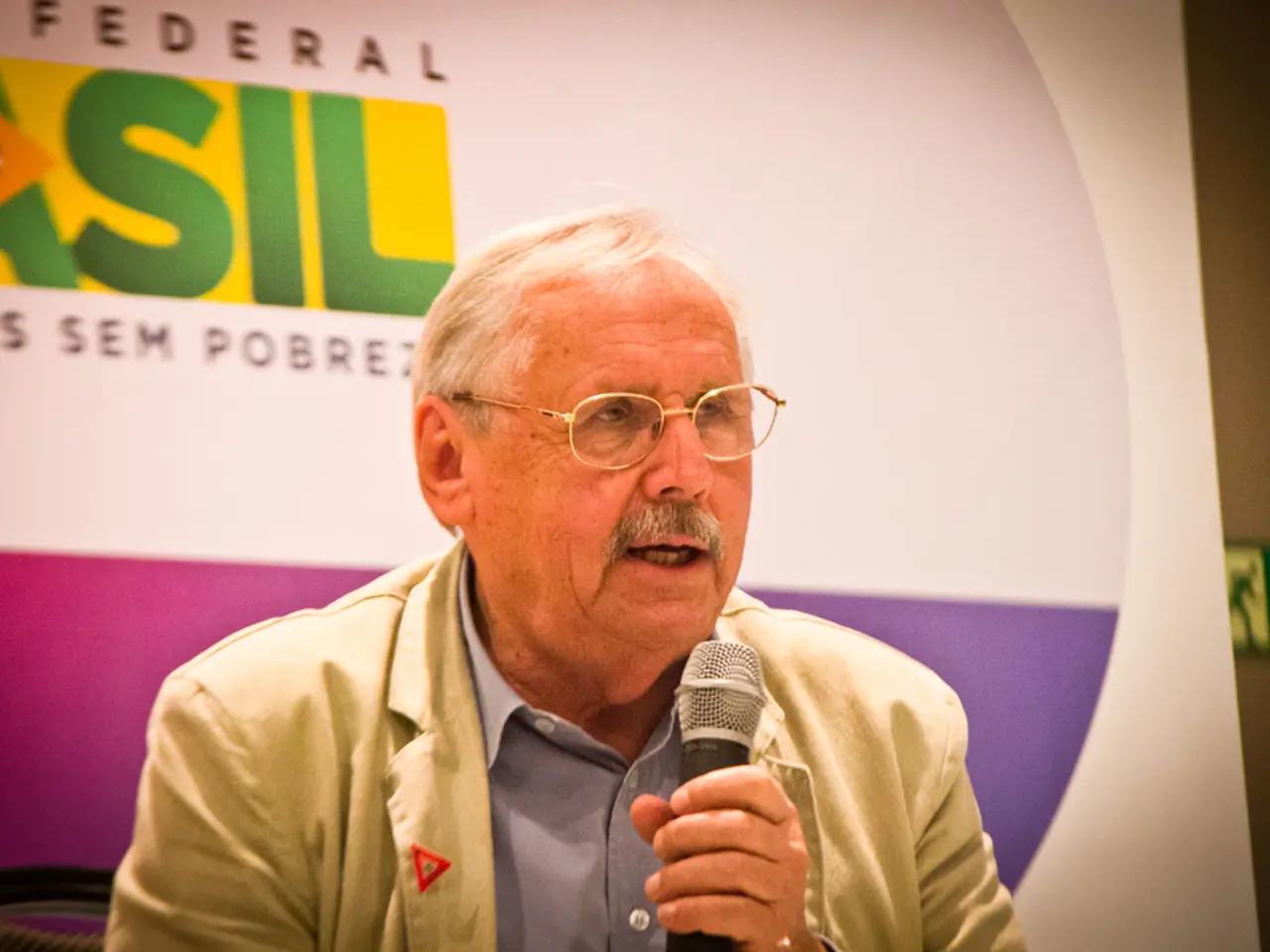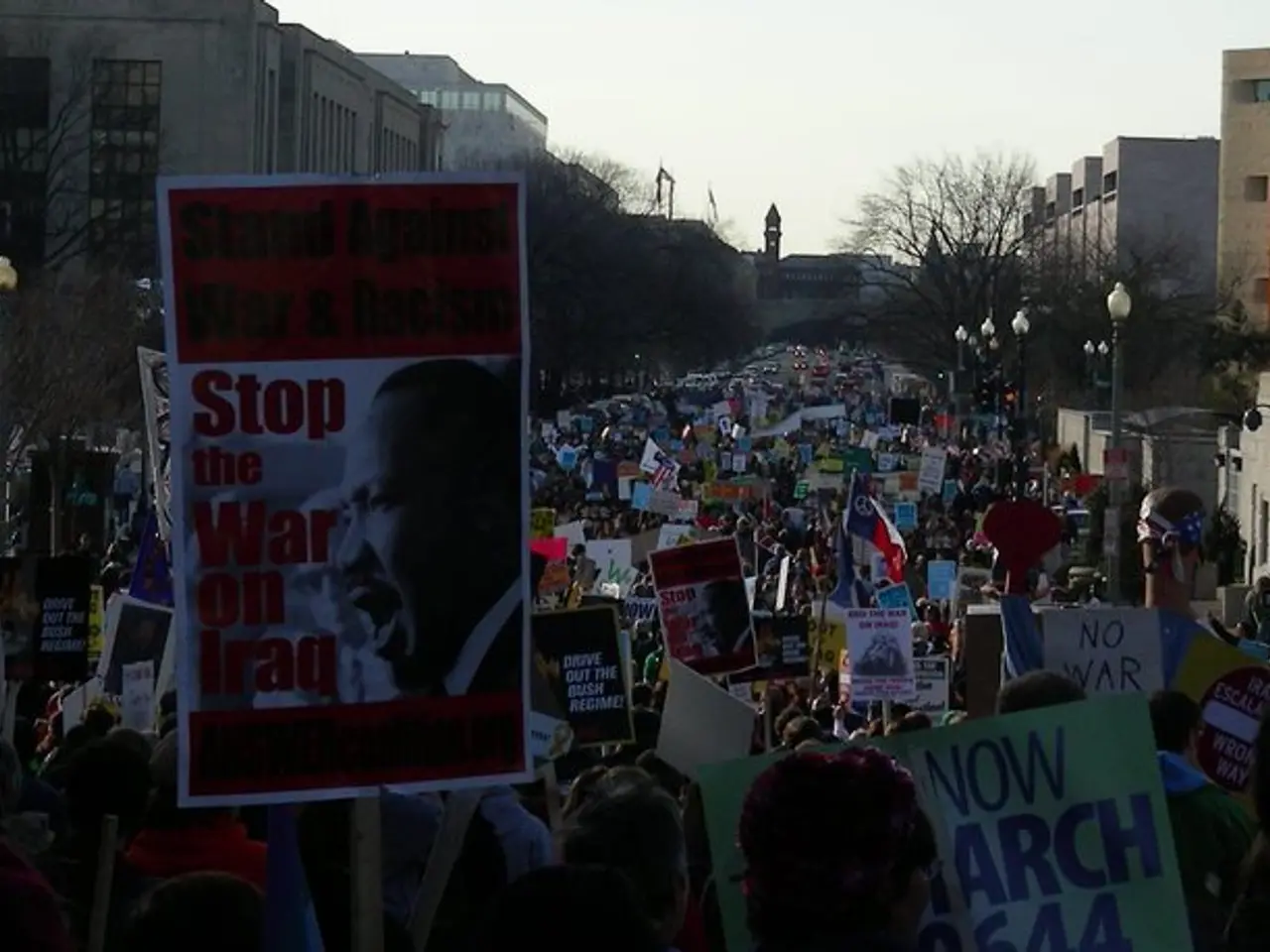Military conflict pulse pauses between Thailand and Cambodia - Tracing a halt in hostilities between Thailand and Cambodia
The ceasefire between Thailand and Cambodia, declared on July 28, 2025, has been in effect but has faced repeated violations, particularly from the Cambodian side. The ceasefire was the result of diplomatic pressure from major powers such as the United States and China, with Malaysia serving as a mediator.
The peace talks, held in Putrajaya, Malaysia, were mediated by Thailand's interim prime minister, Phumtham Wechayachai, Cambodia's prime minister, Hun Manet, and Malaysia's prime minister Anwar Ibrahim. The discussions aimed to restore peace and stability to the border region, which has been a source of conflict for decades due to the ongoing dispute over border demarcation in the Emerald Triangle.
Despite the violations, Thailand has maintained a strict adherence to the ceasefire terms, retaliating only in self-defense when necessary, as permitted internationally. The Royal Thai Army reports that Cambodian forces have engaged in intermittent firing against Thai positions, with mortar fire penetrating Thai territory.
The ceasefire agreement has been welcomed internationally, with the EU's High Representative for Foreign Affairs, Kaja Kallas, describing it as a "significant breakthrough". U.S. President Donald Trump also congratulated all parties involved, claiming his involvement led to the ceasefire and peace between the two countries. However, UN Secretary-General António Guterres has called on Thailand and Cambodia to adhere to the ceasefire for a lasting peace.
As part of the ceasefire agreement, both governments have expressed hope to rebuild trust, confidence, and cooperation between the nations, allowing evacuees to return to their homes and normalizing bilateral relations. The border commissions of Thailand and Cambodia are scheduled to meet next Monday to discuss further de-escalation measures.
The current chair of the Association of Southeast Asian Nations (ASEAN), Malaysia, has played a crucial role in the diplomatic efforts, providing a neutral platform for negotiations. The association, to which both Thailand and Cambodia belong, has been instrumental in promoting regional peace and cooperation.
The fighting that broke out on Thursday claimed at least 38 lives, according to official figures. Phnom Penh confirmed the death of eight civilians and five soldiers. Almost 300,000 people fled their villages due to the latest fighting, with 138,000 on the Thai side and 140,000 on the Cambodian side of the border.
This situation remains fragile, with the ceasefire in place but frequent violations undermining peace efforts as of late July 2025. Diplomatic efforts continue to address the ongoing conflict and work towards a sustained peaceful resolution.
Sources: [1] BBC News. (2025, July 31). Thailand-Cambodia border: Ceasefire violated, Thai army says. Retrieved from https://www.bbc.com/news/world-asia-61691669 [2] Reuters. (2025, July 30). Thailand, Cambodia agree to ceasefire after border clashes kill dozens. Retrieved from https://www.reuters.com/world/asia-pacific/thailand-cambodia-agree-ceasefire-after-border-clashes-kill-dozens-2025-07-30/
- The Commission, being briefed on the draft resolution regarding the implementation of the European Union's external action programme, has expressed its concern over the ongoing war-and-conflicts between Thailand and Cambodia, particularly the repeated ceasefire violations.
- In the midst of the political turbulence caused by the conflict, general news outlets continue to monitor the fragile peace in the border region, highlighting the diplomatic efforts led by Malaysia, the current chair of ASEAN, and the international community's push for a long-term, stable resolution to the war-and-conflicts.








